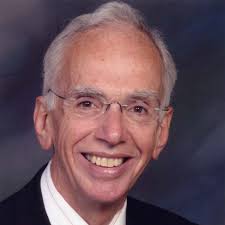
Perhaps Nat King Cole was wrong. Perhaps there never really were “lazy, hazy, crazy days of summer….days of soda and pretzels and beer.” The summer of 1969, for example, was far from lazy, though at times it was indeed hazy and crazy. Neil Armstrong. Woodstock. Charles Manson. Chappaquiddick.
Despite what we want to believe, ha-olam k’minhago holech, the world keeps moving forward with little regard for human conventions such as calendars. Instead of quietly going on a vacation, Israel Education Minister Rafi Peretz recently embraced conversion therapy as a reasonable means of “treating” LGBTQ individuals. Another current Israeli minister, Transportation Minister Bezalel Smotrich, supported Peretz’s ill-informed perspective, while reaffirming his own position that Israeli hospitals should separate Jewish and Arab patients and that Israeli contractors should be permitted not to allow Israeli Arabs to purchase apartments.
Both right wing ministers, in their summer reveries, embrace a view of Israel that overwhelmingly privileges Israel as a Jewish state at the expense of its democratic core.
Israel’s M’gillat Ha-Atzmaut, its Declaration of Independence, is the State’s foundational document. It is not a constitution, since Israel has no constitution, but the M’gillah does serve as the closest thing Israel has to a statement of its founding values. So when the M’gillah appeals to “Jewish people throughout the diaspora to rally round the Jews of Eretz-Israel…in the great struggle for the realization of the age-old dream – the redemption of Israel” – it is clear that Israel’s founders believed a partnership of equals between Diaspora Jews and Israeli Jews was vital to build the new state: a Jewish state that would be democratic; a democratic state that would be Jewish. Creating such a geopolitical entity, however, is nothing less than profoundly difficult.
Rabbi Uri Regev, in a forthcoming book. acknowledges that only in times of crisis do the terms “Jewish” and “democratic” become central to public discourse among Jews in Israel and abroad. He further asserts that currently, we are deeply embroiled in precisely such a time of crisis. Regev sees Israel as a laboratory for Judaism itself, as those committed to the Jewish state test out the core elements of their own Jewish identities. To assert our membership within the Jewish people throughout history and across the globe, we are claiming not merely a set of roots and branches, but a hierarchy of personal values as well. What we are and who we are cannot be separated. (Deepening the Dialogue: Jewish Americans and Israelis Envision the Jewish-Democratic State. Rabbi Stanley M. Davids and Rabbi John Rosove (ed.), New York, CCAR Press, 2020.)
The struggle for equal access for women at the Kotel (Western Wall) must be seen therefore not as our primary focus but as a serious symptom of an ever-expanding fissure between the two largest Jewish communities in the world. Leading members of Prime Minister Netanyahu’s coalition do not believe that Diaspora Jewry has more than two or three generations to go before it (we!) disappear. So why should it matter that the overwhelming majority of Diaspora Jewry supports full religious equality within Israel as both a significant Jewish and democratic value – at the Kotel, but also in marriage, in divorce, in rabbinic officiation, in guaranteeing full equality for women, and more?
Surveys produced through Hiddush, an Israeli organization founded by Regev and devoted to a trans-denominational effort to promote religious freedom in Israel and to realize the dreams of Israel’s founders, clearly indicate that most Israeli Jews embrace Israel as necessarily blending its parallel emphases on Judaism and democracy. And yet Israel finds itself the sole western democracy that denies its own citizens freedom of marriage. Regev asserts that most Jewish young people across the globe cannot marry in Israel because the chief rabbinate does not recognize them as Jews. How can Israel-Diaspora relations be strengthened under such circumstances? How can Prime Minister Netanyahu continue to assert that every Jew in the world should feel ba-bayyit – at home – in Israel?
Of course Israel faces real and profoundly troubling existential threats from Iran, Hamas, and Hezbollah. These threats must necessarily be the number one priority of any Israeli government. But undertakings by the current Israeli government create their own form of existential threat: a threat to Israel’s ability to survive as a unique blend of Jewish and democratic. And that threat puts at risk the future of the entire Jewish people.
Regev will not allow the matter to stand. He calls for immediately establishing a dialogue about the strategy needed to catalyze change within Israel. Such a dialogue would involve equal stakeholders, equal partners, devoted to translating the formula of Jewish and democratic into actions, policies, and legislation – moving world Jewry from protests to transformation.



